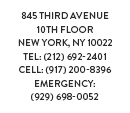Changes in South African Immigration Policies
The following are important information with regards to changes in South African immigration policies. The South African Immigration Act, 2010, has been approved and the date for commencement was communicated as of May 26, 2014.
The following regulations must be adhered to effective immediately:
· Passengers travelling to South Africa must be in possession of a passport with two unused pages required for endorsements. The two unused pages when presented for purposes of endorsing a port of entry visa, visa, permanent residence permit or entry of departure stamp.
· The passport must be machine readable however, the foreigner may be admitted into or depart from South Africa with a non-machine readable passport provided that:
(a) He or she is from a foreign country that is issuing machine readable passports and has not completely phased out the non-machine readable passports; and
(b) His or her passport was issued after 24 November 2005 and its date of expiry is before 24 November 2015.
· Any child who is in alternative care as defined in the Children’s Act, shall, before departing from the Republic of South Africa, produce a certified copy of an authorisation letter from the Provincial Head of the Department where the child resides as contemplated in section 169 of the Children’s Act.
· Where parents are travelling with a child, such parents must produce an unabridged birth certificate of the child reflecting the particulars of the parents of the child.
· In the case of one parent travelling with a child, he or she must produce an unabridged birth certificate and:
(a) Consent in the form of an affidavit from the other parent registered as a parent on the birth certificate of the child authorizing him or her to enter into or depart from the Republic of South Africa with the child he or she is travelling with;
(b) A court order granting full parental responsibilities and rights or legal guardianship in respect of the child, if he or she is the parent or legal guardian of the child; or
(c) Where applicable, a death certificate of the other parent registered as a parent of the child on the birth certificate,
· Provided that the Director-General may, where the parents of the child are both deceased and the child is travelling with a relative or another person related to him or her his or her parents, approve such a person to enter or depart the Republic with such a child.
· Where a person is travelling with a child who is not his or her biological child, he or she must produce:
(a) A copy of the unabridged birth certificate of the child;
(b) An affidavit from the parents or legal guardian of the child confirming that he or she has permission to travel with the child;
(c) Copies of the identity documents or passports of the parents or legal guardian of the child; and
(d) The contact details of the parents or legal guardian of the child,
· Provided that the Director-General may, where the parents of the child are both deceased and the child is travelling with a relative or another person related to him or her his or her parents, approve such a person to enter or depart the Republic with such a child.
· Any unaccompanied minor shall produce to the immigration officer:
(a) Proof of consent from one or both his or her parents or legal guardian, as the case may be, in the form of a letter or affidavit for the child to travel into or depart from the Republic: Provided that in the case where one parent provides proof of consent, that parent must also provide a copy of a court order issued to him or her in terms of which he or she has been granted full parental responsibilities and rights in respect of the child;
(b) A letter from the person which is to receive the child in the Republic, containing his or her residential address and contact details where the child will be residing;
(c) A copy of the identity document or valid passport and visa or permanent residence permit of the person who is to receive the child in the Republic; and
(d) The contact details of the parents or legal guardian of the child.



